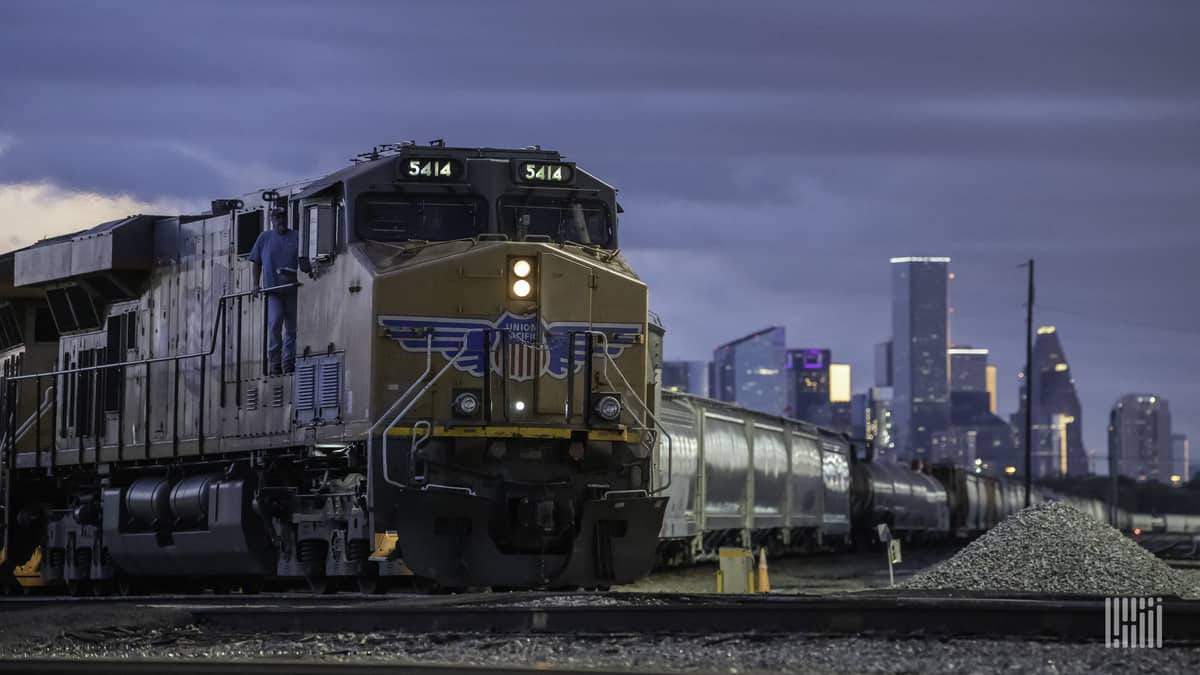Twelve rail unions have banded together to sue the Class I railroads over proposed healthcare benefit-related provisions, saying that the railroads have refused to address the provisions during the collective bargaining process that began on November 1, 2019.
The unions say they want the U.S. operations of the Class I railroads to address proposed restrictions to accessing certain medications and proposed reconfigurations of healthcare networks during the collective bargaining process and not through another channel.
The railroads counter that it is their fiduciary responsibility to offer the proposed changes.
According to the suit, the restrictions are related to an opioid management program. The unions say they’re concerned that the program would take away benefits currently in place under the collective bargaining agreements, and so union membership should have a right to vote on this decrease in benefits through the collective bargaining process.
These issues have been the subject of collective bargaining for decades, the unions said. By not discussing these issues during the collective bargaining process, the railroads are violating Section 6 of the Railway Labor Act.
The unions that are part of the lawsuit are: the American Train Dispatchers Association; the Brotherhood of Locomotive Engineers and Trainmen; the Brotherhood of Maintenance of Way Employes; the Brotherhood of Railroad Signalmen; the International Association of Machinists and Aerospace Workers; the International Association of Sheet Metal, Air, Rail and Transportation Workers, Mechanical Division; the International Association of Sheet Metal, Air, Rail and Transportation Workers, Transportation Division; the International Brotherhood of Boilermakers; the International Brotherhood of Electrical Workers; the National Conference of Fireman & Oilers District, Local 32BJ, SEIU; the Transportation Communications Union/IAM; and the Transport Workers Union.
The unions filed the lawsuit on August 5 in the U.S. District Court for the District of Columbia. The National Railway Labor Conference (NRLC) is also named in the lawsuit as a defendant because its National Carriers’ Conference Committee is the designated bargaining agent for the railroads.
“The railroads’ attempt to evade their legal obligation to bargain on these issues of great importance to our members has left us with no choice but to enforce these legal rights in court. If implemented without successfully negotiated application, the carriers’ proposals could be extremely harmful to our members and their families,” the unions’ chief executives said in a joint statement. “Even more outrageous, the process they are attempting to impose would allow rail carriers to reduce employees’ access to medicines and doctors in the middle of a pandemic. When they should be rewarding the contributions of their essential employees with hazard pay, the rail carriers instead attempt to reduce medical benefits when they are needed most.”
The unions continued, “Events like these are why railroad managers were labeled as ‘Robber Barons’ over a century ago; their actions today are proof positive that the label still applies. Unfortunately for working class Americans, this is the way of many corporations across the country in Donald Trump’s America; essential employees are treated as expendable employees. We will not stand idly by while management attacks the core legal rights our members enjoy.”
The affected railroad workers are covered by the NRC/UTU Plan and the Railroad Employees National Health and Welfare Plan.
In a matter unrelated to healthcare benefits but related to the collective bargaining process, a federal judge earlier this year ordered the rail labor unions to negotiate with the Class I railroads over the issue of train crew size during collective bargaining.
Class I railroads’ response
The Class I railroads “strongly disagree” with the allegations in the recent complaint, NRLC told FreightWaves.
“Railroad health care benefits are among the best in the nation. The plans that provide thes benefits are administered jointly by committees that include an equal number of representatives from both labor and the railroads, and these committee members have a fiduciary obligation to administer the plans in the interest of plan members. It is in this role as a fiduciary that the carriers’ representative requested two administrative changes,” NRLC said.
NRLC contends that the realignment of available vendor networks would enable more favorable discounts, which in turn “would reduce wasteful spending by the plan and save money for plan members” and would also result in no change in providers for the “overwhelming majority” of cases.”
The rail carriers’ group also said it proposed to implement a pharmaceutical safety program recommended by the plans’ prescription drug benefit manager, Express Scripts. The program addresses opioid usage. NRLC said the program’s implementation is an “incremental change to an already robust program [that] will enhance safety for employees and their families.”
“The carriers believe these are typical plan administration matters – most plan administrators routinely do these types of things – that are in the best interests of plan members, the railroad employees and their families,” NRLC said. “While labor may disagree, the parties’ agreements provide for binding arbitration of administrative disputes, and that is the proper forum for resolution of this matter.”
Click here for more FreightWaves articles by Joanna Marsh.
Related articles:
Federal judge orders rail union to negotiate on train crew size
U.S. freight railroads, labor unions start collective bargaining round










